ARTICLE AD BOX
Pakistan accused India of “igniting an inferno” over Kashmir and vowed to retaliate after missile attacks by the Indian air force killed 31 people – including women and children – and raised fears of an escalating conflict between the two nuclear-armed countries.
Islamabad called the nine strikes, on Pakistan-administered Kashmir and the Pakistani province of Punjab, an “act of war” and said it had shot down several Indian aircraft.
India said it had targeted “terror camps” inside Pakistan in response to the 22 April terrorist attack in Pahalgam that left 26 dead, all but one of them Hindu tourists.
It was the first attack on Pakistan's most populous province since the two countries fought a war more than half a century ago. Kashmir has been split between he countries since 1949 and is claimed by both in its entirety.
Sir Keir Starmer sad the situation was “of serious concern to many across Britain” and urged calm. “We are engaging urgently with both countries as well as other international partners, encouraging dialogue, de-escalation and the protection of civilians,” he told MPs in the Commons.
The Foreign Office has updated its travel advice for the region, warning against all travel within seven miles of the border and 10 miles of the line of control, the de facto border that divides disputed Kashmir.
New Delhi has long accused Islamabad of fuelling separatism and militancy in Kashmir, the restive Himalayan region claimed in full by both countries but held only in part. Indian officials have said two of the gunmen who allegedly launched that attack were Pakistanis but not detailed any evidence.
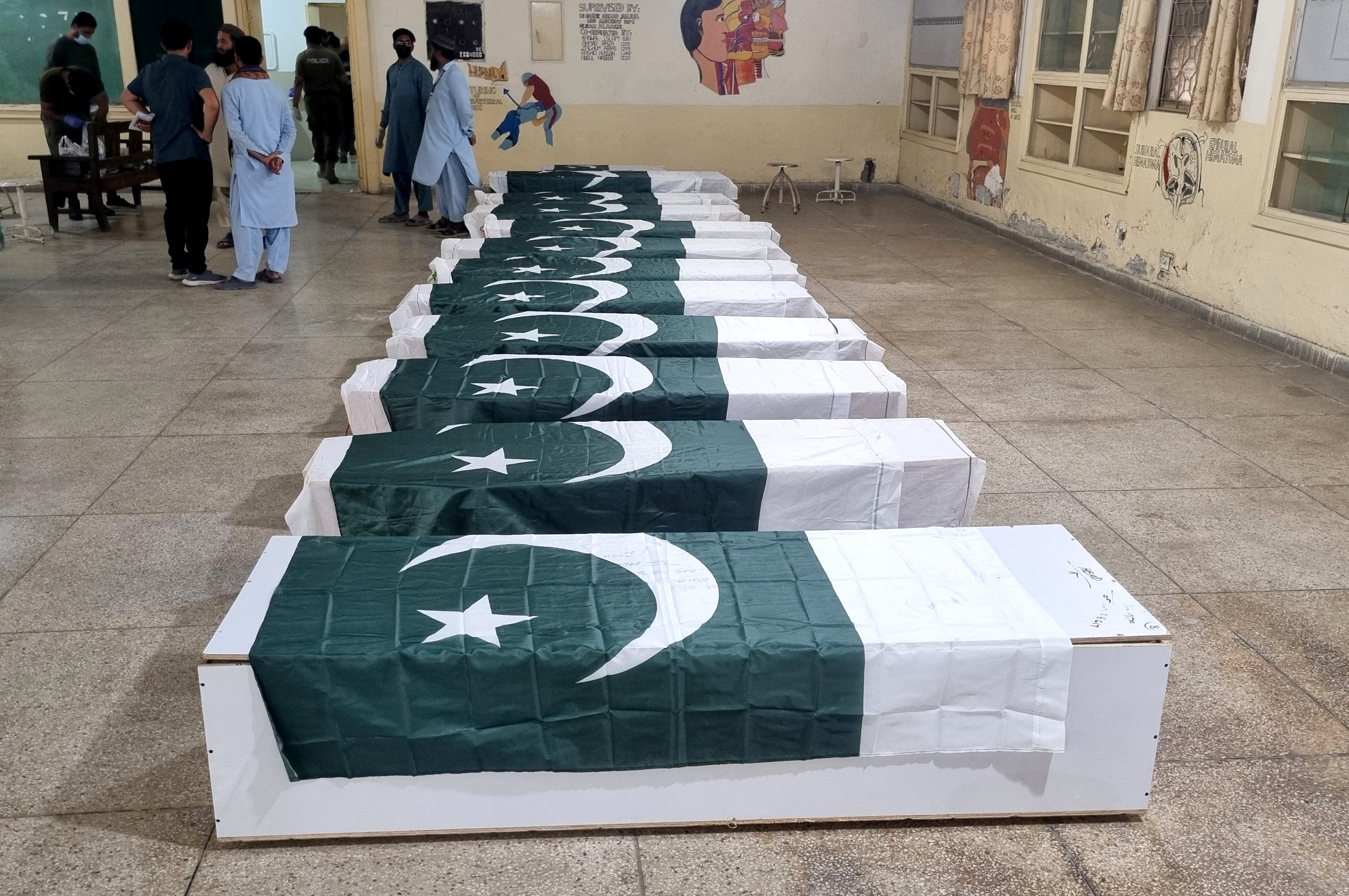
Pakistan has denied any role in the massacre and called for an international investigation.
India typically describes all militancy in Kashmir as terrorism backed by the neighbouring country. Pakistan denies this, and many Muslim Kashmiris consider the militants to be part of a homegrown separatist struggle.
Pakistan’s military claimed it shot down five Indian fighter jets and a drone involved in the strikes. The Indian army said at least 10 civilians were killed and 48 injured as Pakistani forces heavily shelled border areas in Jammu and Kashmir.
At a press briefing in New Delhi, an Indian military spokesperson said jets had attacked facilities linked to militant groups Jaish-e-Mohammed and Lashkar-e-Taiba in Muridke, Bahawalpur, Sialkot, Muzaffarabad and Kotli.
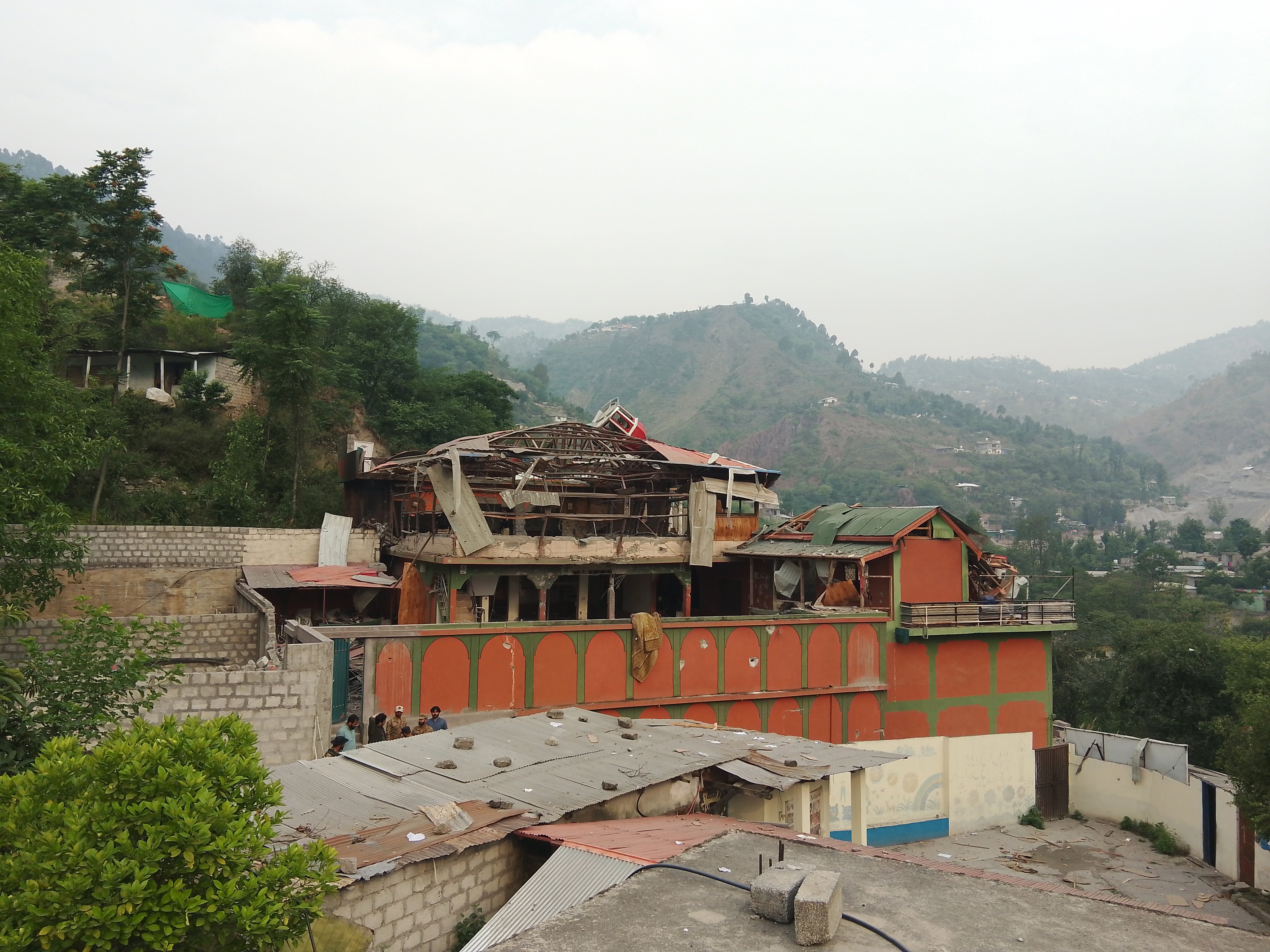
India called it Operation Sindoor, using the Hindi word for the red vermilion powder worn by married Hindu women in an apparent reference to the widows of the 22 April attack.
Masood Azhar, the chief of Jaish-e-Mohammad, said the strikes killed 10 members of his family in Bahawalpur including his sister and her husband, his nephew and his wife, a niece, and five children were killed.
Mr Azhar was freed from an Indian prison in 1999 in exchange for 155 hostages on an Indian Airlines flight hijacked and flown to Afghanistan.
Indian defence officials said the military was “ready to deal with any misadventure by Pakistan”, signaling preparedness for retaliation.
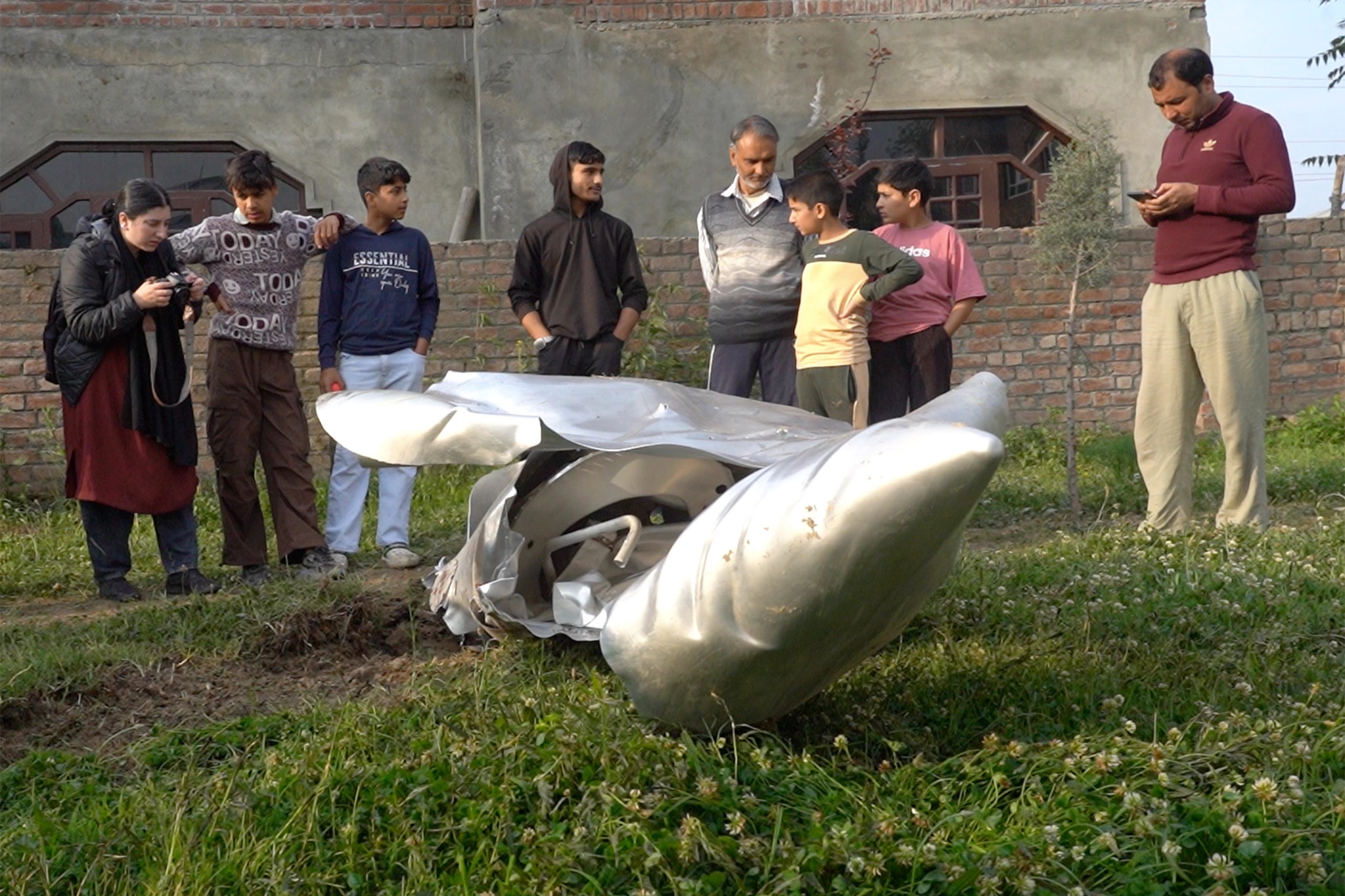
On the Indian side of Kashmir, fearful residents rushed to stock up on groceries and fuel.
At dawn, the wreckage of a downed aircraft was spotted but the area was swiftly sealed off from local residents and journalists.
Regional authorities ordered schools to remain closed, particularly in districts near the de facto border with Pakistan.
Indian authorities had already ordered civil defence drills across the country, including in schools where pupils rehearsed running to safety under desks.
In Pampore, south of the capital Srinagar, villagers spent much of the night trying to douse flames after an unidentified aircraft crashed.
An eyewitness said the plane came down in the Wuyan area. "At around 2am, we heard a loud noise, and all houses were lit up by a bright light followed by a blast," the villager who asked not to be named told The Independent. "We thought it was a mock drill as planned but there were multiple blasts after that and there was a strong diesel smell spreading.”
"We saw an aircraft that passed from behind our house, it returned and hit a school building. There was a loud thud and fire,” the villager said.
“Fire services were called and they controlled the blaze. Then the army arrived and we weren't told anything further until this morning."
In Muzaffarabad, capital of Pakistan-administered Kashmir, people ran to safety after hearing loud explosions. TV channels showed videos of explosions, fire, large plumes of smoke in the night sky and people fleeing in several places in Pakistan and Pakistan-administered Kashmir.
Mosque loudspeakers told people to seek shelter as the ground shook and sounds of explosions reverberated.
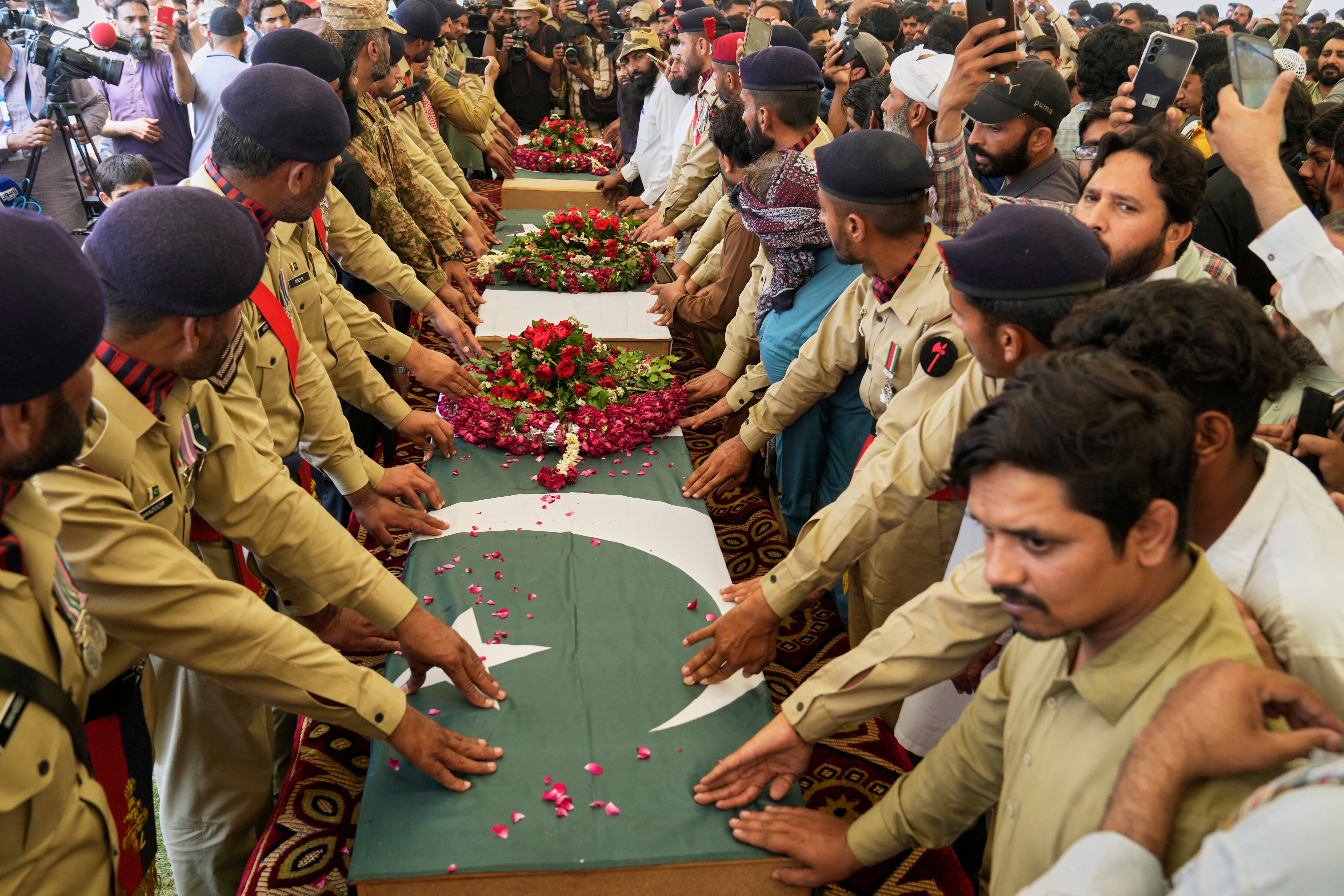
“We came outside,” Muhammad Shair Mir, 46, told Reuters. "Then another blast happened. The whole house moved. Everyone got scared, we all evacuated, took our kids and went up the hill."
Mr Mir said he and his family spent four hours in the open, too afraid to return home. Some of his neighbours were injured, while others were left deeply shaken.
“This is just wrong,” he said, his voice trembling. "Innocent people are suffering. Our poor mothers are unwell, our sisters are unwell. The blasts rattled our homes, our walls are cracked, our children are terrified."
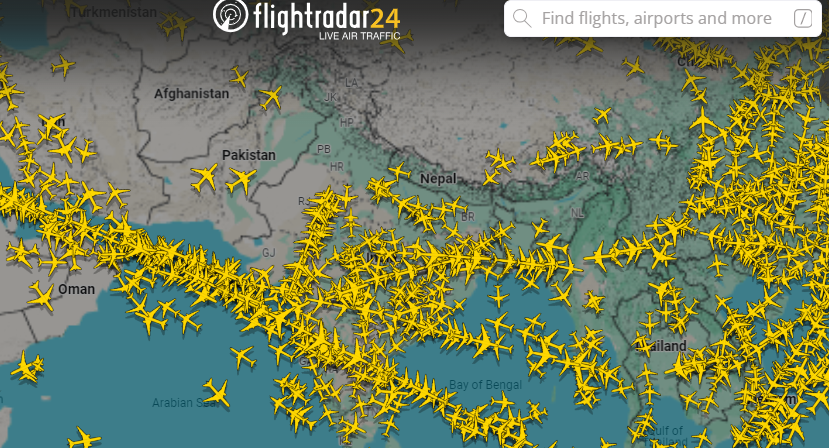
A wave of flight cancellations and diversions hit Asia, the Middle East, and Europe as airlines rerouted aircraft to avoid Pakistani airspace.
Images from flight tracking websites showed a long line of aircraft passing over Oman, UAE and Kuwait after the attack.
Authorities in Pakistan said 57 international flights were in the country's airspace when India struck. Prime Minister Shehbaz Sharif's office said India's action "caused grave danger to commercial airlines" belonging to Gulf countries and "endangered lives".
India’s budget airline IndiGo said it was cancelling 165 flights until Saturday morning. SpiceJet says it cancelled flights to Srinagar and to the cities of Dharamshala, Leh, Jammu and Amritsar in northern India after those airports were closed.
Associated Press and Reuters contributed to this report









 English (US) ·
English (US) ·